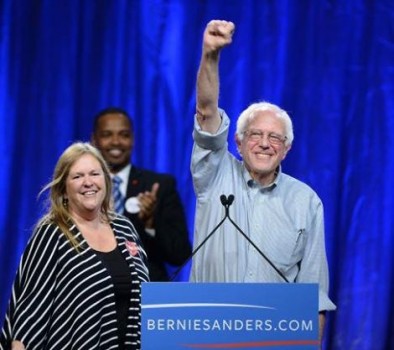 In 1986, the military government of General lbrahim Babangida established the Political Bureau. The Political Bureau initiated a debate on the social-economic and political system Nigerians wanted – and their answer was socialism. But two years after the report of the Political Bureau was published, the Berlin Wall collapsed along with the so called socialist regimes of Russia and Eastern Europe. The ideas of socialism suffered a major defeat and for a generation free-market capitalism was seen as the way forward.
In 1986, the military government of General lbrahim Babangida established the Political Bureau. The Political Bureau initiated a debate on the social-economic and political system Nigerians wanted – and their answer was socialism. But two years after the report of the Political Bureau was published, the Berlin Wall collapsed along with the so called socialist regimes of Russia and Eastern Europe. The ideas of socialism suffered a major defeat and for a generation free-market capitalism was seen as the way forward.
Now, however, these ideas are being seriously questions and millions of people across the world are turning to socialism. In the US, Bernie Sanders, the socialist candidate for the Democratic Party is winning millions of votes. He has won four of last six states in the contest to be the Democratic Party’s candidate in the presidential elections.
In September last year, Jeremy Corbyn was elected as one of the most left-wing leaders in the history of the British Labour Party. He won nearly two thirds of the vote and around 300,000 people have recently joined the Labour Party to support him.
Similarly, Jean-Luc Mélenchon, founder of France’s Left Party, and comedian Beppe Grillo, who founded Italy’s Five Star Movement, are gaining huge popular votes. There is clearly great anger in Europe at the vicious austerity and unemployment. Working people in Europe are searching for alternatives to failed and treacherous political leaders and parties.
In Africa too, people are looking for a socialist alternative. In South Africa, the Economic Freedom Fighters are the third largest party in parliament. The largest trade union, NUMSA is also establishing a movement for socialism. In Egypt the Arab Spring brought widespread support for socialist ideas.
In America, the success of Bernie Sanders is clearly based on widespread anger about economic inequality and insecurity. Wages have remained so low that a quarter of U.S. households have less than $100 (N20,000) in their bank accounts and many have seen no real increase in their wages since the 1970s.
Bernie Sanders’ campaign has become the latest explosive expression of class anger – another face of a radicalization that includes Occupy Wall Street, the protests of low-wage workers for a $15-an-hour minimum wage and the Black Lives Matter movement, to name but a few.
Styling himself as the candidate of the “99 percent against the 1 percent”, Sanders stands for change. He backs a $15 an hour minimum wage, more regulation of the banks and restrictions on their size. Sanders wants urgent action on climate change and a move away from fossil fuels. He is for free tuition for students at publicly-owned universities and colleges, and reducing the number of people in prison.
Over 400,000 people across the US have come to hear him speak at rallies and cheered his call for a “political revolution” and socialism. However, Hilary Clinton remains the favourite, not least because she has a mountainous lead of 460 to 23 among the 717 unelected “super-delegates” for the presidential nomination of the Democratic Party.
There is deep anger against gaping inequality and the continuous war ‘on terror’. People are hungry for political alternatives that will serve their interests instead of the insatiable greed of the rich elite. But people are also looking for any alternative – not just socialism. Many are turning to the extreme right – the billionaire Donald Trump in the US, the fascist National Front in France and militant Islam across the middle east.
In Nigeria, some are looking to a socialist alternative or the ‘change’ of Buhari, but others are looking to Boko Haram, the Shia movement led by El-Zakzaky, Biafra or ethnic politics. We have a greater chance now to put across the socialist message, but it needs hard work and dedication.
Millions across the world are beginning to reject the rule of the billionaire class and increasingly looking to genuine ideas of socialism. Mass movements of working people will be the critical factor in leading humanity away from a world ridden with war, poverty, refugee crises and climate disaster and toward a society that can use the resources of this planet to deliver a sustainable and high standard of living for all.









